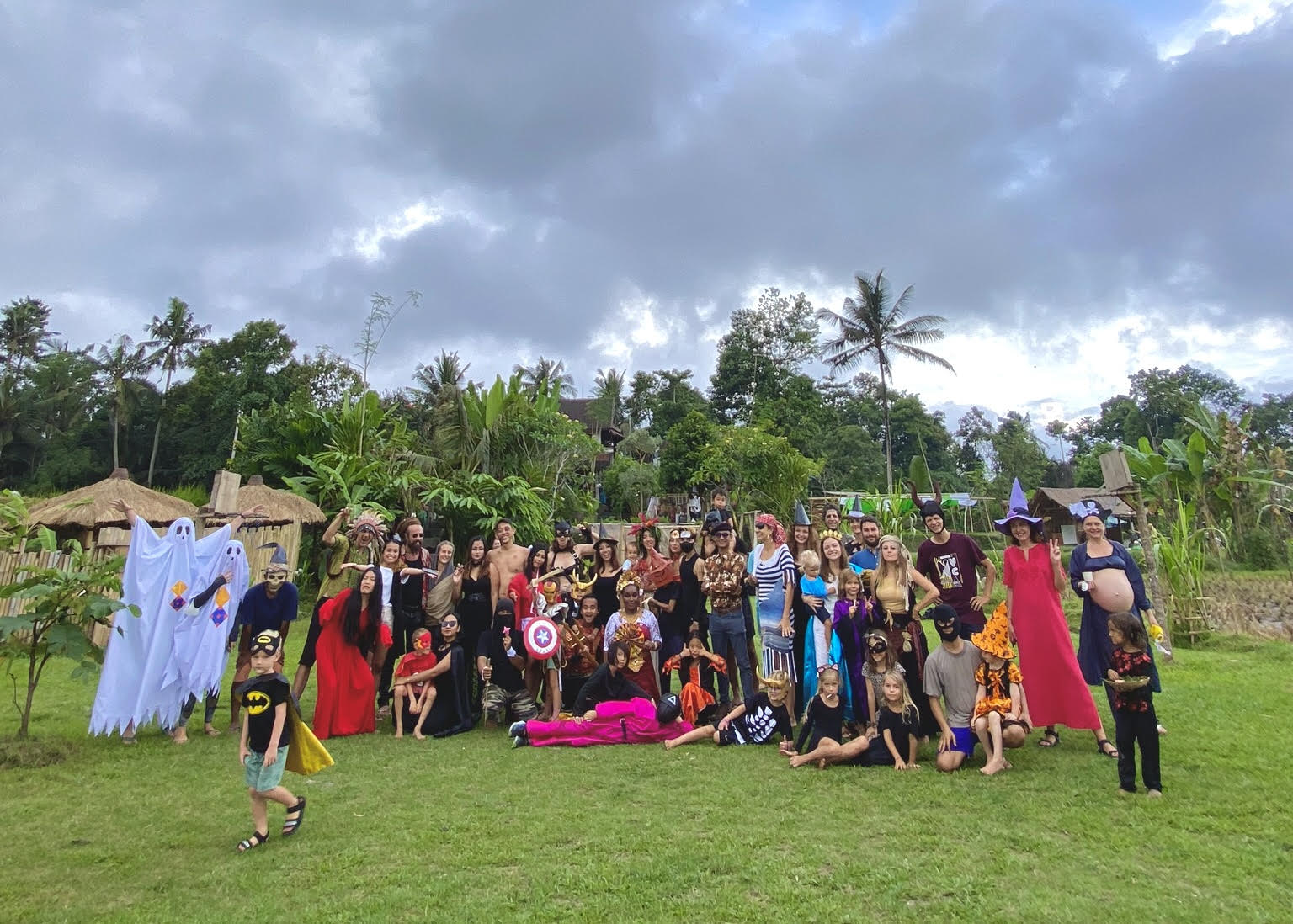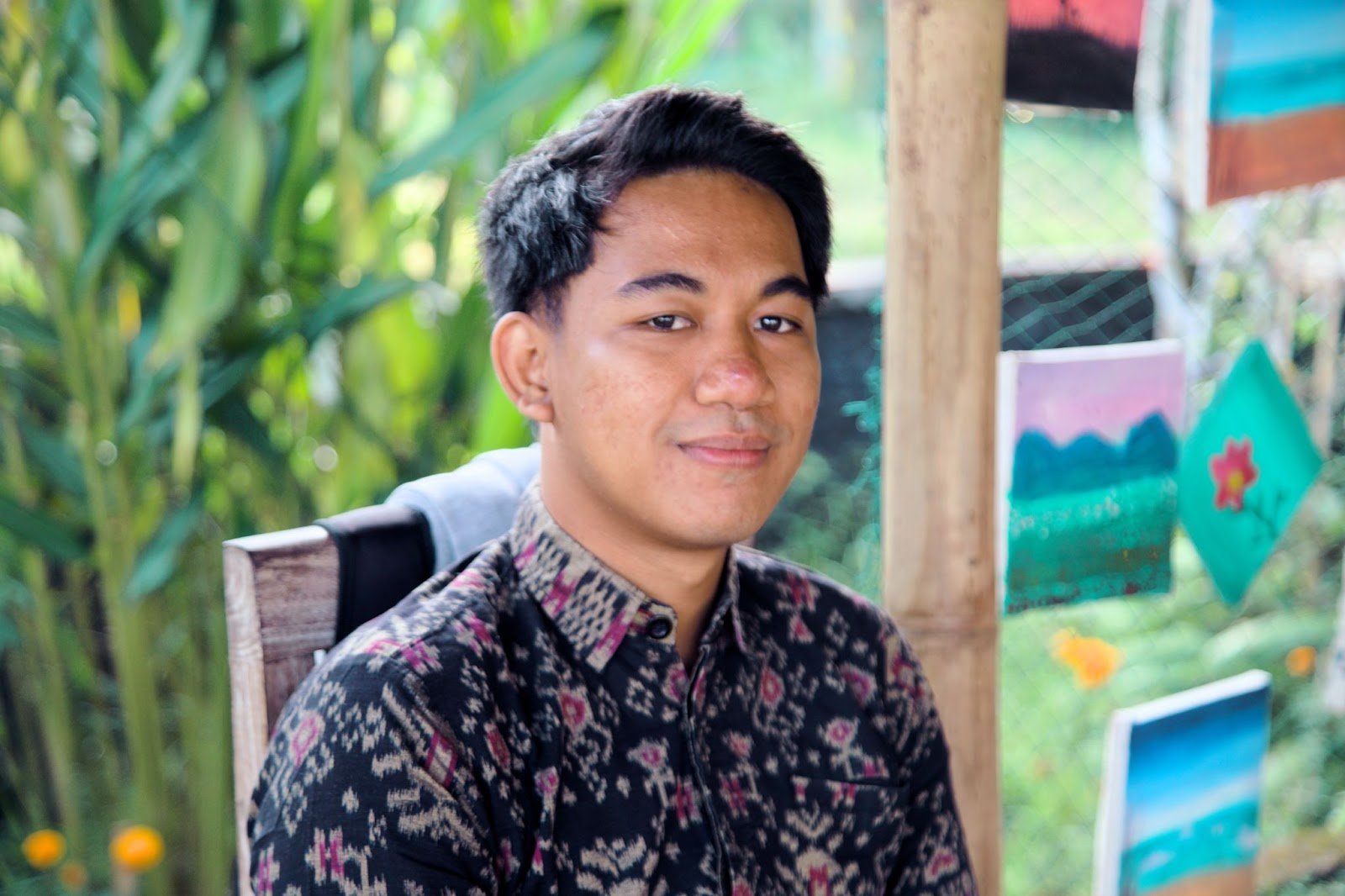Meet the founders of Empathy School who are redesigning education for a new age
Visitors to Empathy School in Ubud, Bali, are often perplexed. Where are the desks? The discipline? The disinfectant?

What kind of school has a mud pit? An average class size of four children? Why are classes not based on age? Does this kind of education work? Questions. Questions. All of them will be answered in time. But first you have to ask the big question at the heart of the project.
The question that has occupied founders Eric Gonzales-Payne and his wife Hui Ya Ting since they studied at Harvard University. Namely – in this age of artificial intelligence, global consumerism and climate change – what kind of education will best prepare your child for the future? Or as Hui Ya Ting puts it, succinctly: “What do you want for your child?”
Your tour begins. You park your car in a country lane outside Ubud and walk up a wooded hill, past rice fields, ducks, cows, an old lady bathing in a stream, and into a landscape barely touched by modernity. Empathy School’s stated mission is “to create an empathetic environment in which students become equipped with skills to tackle life in the 21st century… and at the same time have the most amazing childhood possible”.

Empathy School is part of a global movement of “nature schools” or “wild schools”. And as you approach, it is clear that something special is happening. The school was established in mid-May 2020, in a luxury villa and its surrounding fields. Now – just nine months later – it has transmogrified into an Arcadian village. In terms of numbers, it is over halfway to its ultimate target of 75 children. It has a waiting list in most categories, and the three or four new places it does offer each month fill up fast. The new parents are international entrepreneurs, technology innovators and creatives.
Part of a global tribe that is rethinking consumerism, waste, and our growing disconnect with mother earth. Strange, perhaps, that the people designing our shiny new world and thinking most about the future want their children to grow up in nature.

As you stand on the terrace of the villa (now nicknamed The Castle) it is clear how radically and completely the founders have put nature at the heart of the school. Most classes take place outside. Everyone is barefoot.
The area is dotted with small bamboo huts where Maths and English classes happen. (Also mythology, robotics, woodwork, art, music, markets and chess to name a few). And if a giant bug flies into the bamboo classroom? “That’s okay,” says Eric. “That is real life. You are doing something and then something else comes up. It’s okay to have these conflicts. Children learn better when they are passionate and having fun.”
“Nature is our best teacher,” says Eric Gonzales-Payne, School Principal, as he greets you at the school gate. “Nature challenges us. You never know what is going to happen.” – Eric Gonzales-Payne
On the gentle hill below, children of all ages are busy with various forms of “evidence-based education” and you can’t help but notice something – not only do they look super happy, they are also super fit. “We serve only vegan food,” says Eric. “Most of it is grown within a mile of the school.” Sugar is banned. Sweets (and toys for that matter) must be turned in at the door. “We start the day with a nature walk and give children lots of physical activity – the trampoline is especially popular – so they burn off energy and can focus on classes.”
Focusing in class is something that Eric and Hui Ya are very keen on. Classes average around four children per teacher. And even more unusual – they are not streamed by age but by ability. This means a five year old might be in the same class as two seven year olds. “Streaming according to age was invented a century ago to make education cheaper,” explains Eric.
“It’s more effective to focus on ability. That way no one gets left behind and no one gets slowed down.” Teachers – some of whom are ex-Montessori – are not allowed to rely on worksheets. “We want our teachers to be in the moment – focused on the children not free-wheeling on old class notes.”
You walk with Eric down the hill. Past Excalibur stuck into a stone, past a swimming pool with a balancing pole, solar panels, water wheels and various school irrigation projects to the mud pit. A rope hangs over the goo.
“Wanna swing across?” Eric asks. You eye the rope doubtfully. “Don’t worry,” smiles Eric. “We have extra clothes.” The mud swing helps symbolise the main lesson Empathy School is teaching. (No, it’s not ‘mud is good for your immune system’ although they do believe that.) Eric waits to make sure you are listening. “The single most important skill we are teaching is the ability to listen to your inner voice.”
This is why the school is called Empathy. “The foundation of education is empathy,” says Eric. “Empathy first means being able to talk to oneself. Everyone of us has had this time when we question who we are. What we want in life. What we don’t want. We need a clear voice to be able to thrive in life. So many people have lost – or never developed – their inner voice. So many adults are still walking in the darkness.”

As your tour continues up ladders, along paths and through the “enchanted forest” you watch children being supervised in evidence-based education – learning fractions with watermelon slices in the kitchen, building kites, making their own wooden swords, building homes for the animal sanctuary or just ferociously jumping on the trampoline – you become aware of how much emphasis is put on playing together and learning together.
“Empathy School is not for everyone. You wouldn’t come here if you felt your child needs to be in a box.”
Which brings you back to the big question: “What do you want for your child?”
“After listening to your own voice, the next most important lesson we teach is how to communicate and empathise with others,” says Eric. If the school had a founding father it would be Marshall Rosenberg, the psychologist who developed Non-Violent Communication (NVC) in the 1960s. His picture is on the wall, his works are part of the teacher training and his birthday is celebrated with a school workshop. “NVC is our default language,” says Eric.
“We teach pupils how to communicate without attaching blame and how to develop real communication strategies. We focus on their socio-emotional development. This helps the students to bond together and paves the way for them to quickly advance in this area very early on.”
As you return to the castle and survey the scene; mud, animals, flowers, the barefoot children in their colorful rags, Eric concedes: “Empathy School is not for everyone. You wouldn’t come here if you felt your child needs to be in a box.”
Which brings you back to the big question: “What do you want for your child?”
For the full article, please visit this link.



 Previous Post
Previous Post 
Leave Your Comment